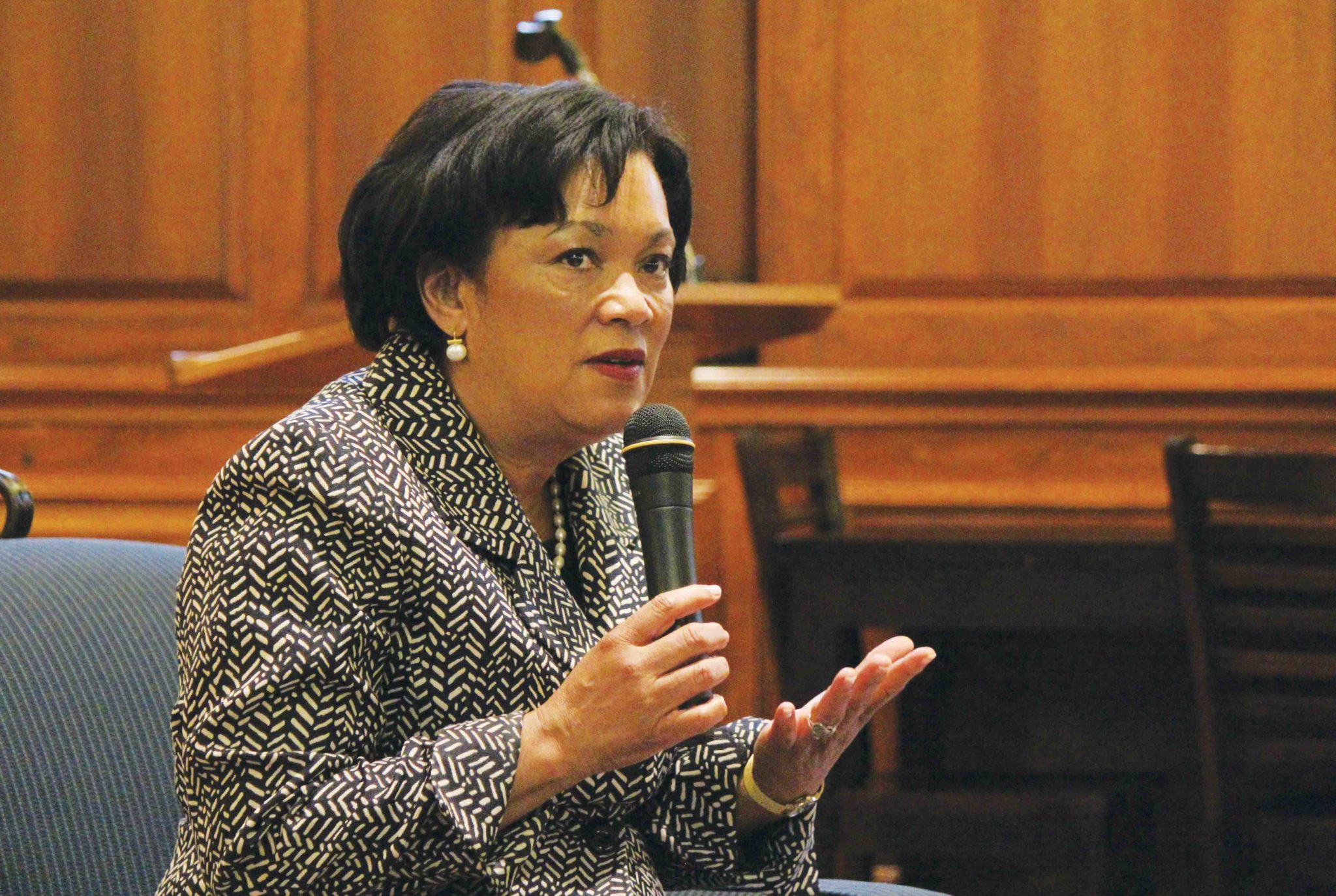
As the Elm City’s budget crisis drags on, New Haven Mayor Toni Harp sent a letter to City Hall’s nonunionized workers, announcing that they will be required to take unpaid time off in this fiscal year — a move her office hopes will lead to more impactful changes in the city’s fiscal crisis.
On Oct. 30, the Harp administration sent a letter to 36 employees, who are not affiliated with labor unions, informing them of mandatory furloughs. Individuals in the affected group will be required to take three full days of unpaid time off in the 2018–2019 fiscal year, which began on July 1 of this year and concludes in June 2019. The measure to cut costs — which is estimated to save $60,000 — comes as the city seeks to find its financial footing.
“As leaders in our various departments and our City, we need to be role models in demonstrating our support of sound fiscal responsibility,” Harp wrote in the letter announcing the forced days off.
The group of employees the measure concerns is largely comprised of Harp’s top personal and administrative aides who, unlike most city employees, are not covered by a union contract. Harp as well as employees of the city’s human resources department will also be subject to the furlough days.
Mayoral spokesman Laurence Grotheer stressed that the primary significance of the furloughs is not the immediate cost cuts but rather a demonstration of the Harp administration’s willingness to compromise. As negotiations between the city and the unions are ongoing, the mayor hopes her furloughing will incite unions to accept concessions in negotiations for their own contracts and salaries.
“[These furloughs are] the very first aspect of an initiative that will be ongoing,” Grotheer said. “The hope is that other city workers, as members of different bargaining units, will also agree to concessions in an effort to address a challenging financial circumstance this year.”
New Haven’s fiscal concerns came to a head this summer, when the city took on its largest debt restructuring in order to avoid bankruptcy. The restructuring of $160 million in existing debt as well as an additional $58 million in new borrowing freed up some room for expenditures in the short term, but extended the burden of paying off debt well into the 2030s. Consistent with last year’s trends, operating costs are on track to exceed the allotted amount.
“$60,000 is a drop in the bucket compared to our city’s budget deficit,” Ward 1 Alder Hacibey Catalbasoglu ’19 said. “If we really want to look at ways to cut costs, we should start with not increasing anybody’s salaries and finding more efficient ways of running city government.”
In light of the city’s dire fiscal situation, several of Harp’s recent financial decisions have been heavily criticized. To account for the debt crisis, New Haven adopted measures such as an unpopular 11 percent increase in taxes — the largest hike of any municipality in Connecticut. Around the same time, over the summer, Harp fell under fire for giving raises amounting to over $400,000 to three dozen of her top aides — all of whom fall in the same group that will be affected by the new furloughs.
Although Harp was legally allowed to extend the raises without approval from the Board of Alders, the move prompted criticism. In response, in September, the Board of Alders unanimously passed an ordinance to reduce the departmental budgets of the employees affected by the exact dollar value of the total raises.
At a pension meeting over the summer, Harp responded to criticism of the raises by noting that the increases match the raises granted to members of AFSCME Local 3144, according to the New Haven Independent. If she had not instituted the raises, some of her executive management employees would make less than their subordinates who belong to the union, she said.
The furloughs’ savings are more than negated by the impact of the June raises. Additionally, the measure does not address reigning in fire and police overtime — a key concern raised by several alders in recent hearings for top administrative posts as overtime has been a particularly consistent contributor in overspending.
But at a Board of Alder’s meeting in October, Ward 6 Alder Dolores Colon noted that Harp inherited many of the fiscal issues she is currently facing.
“The city did not thrive,” Colon said, referring to New Haven under a previous tenure of Harp’s nominee for chief administrative officer, Sean Matteson. “As a result, the current mayor inherited a huge, huge amount of financial problems.”
The Elm City’s general fund operates on roughly $550 million a year.
Angela Xiao | angela.xiao@yale.edu .







